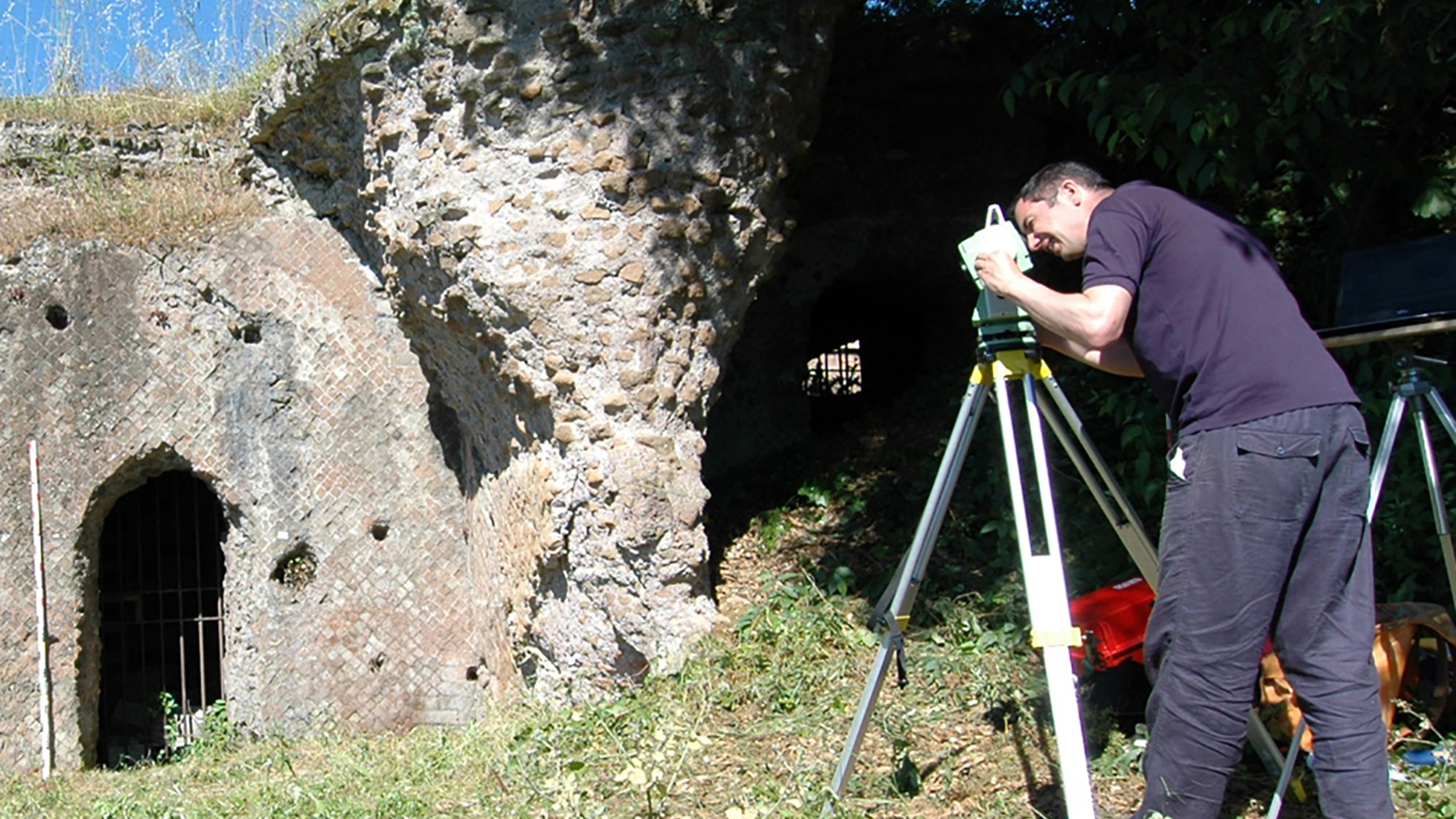
Overview
This program provides an opportunity for archaeology students to combine traditional skills in the study of material culture with new approaches to analysis, preservation, and communication, employing digital technologies. The course will provide hands-on training in creating 3D digital models of archaeological objects, experience creating digital presentations that incorporate 3D models and other media, and an overview of practical and ethical issues involved in digital archaeological curation and communication. Participants will work directly with collections held at AAR, including finds from the Gabii Project.
Specific topics include: small finds study in the Mediterranean; strategies for choosing and cataloguing finds; analogue and digital approaches to measuring pottery dimensions and pottery quantification; how to do object photogrammetry; data management and archiving; data dissemination and display (e.g., creating online content); and ethics of archaeological data display.
This intensive summer course is ideal for advanced undergraduate and graduate students with some background working with archaeological finds who are interested in developing skills in digital documentation, curation and presentation of archaeological materials.
Participants in this course may wish to stay on for the Howard Comfort, FAAR’29, Summer School in Roman Pottery Studies.
Dates
June 12–18, 2017.
Application Deadline
February 1, 2017.
Instructors
Laura Banducci is assistant professor of Greek and Roman studies at Carleton University in Ottawa, Canada. She has been working in various capacities on classical sites for the past twelve years. Her research focuses on various facets of artifact analysis including use wear, use life, and object biography, data sharing, and standardization. She also has experience in ceramic petrography and chemical analyses of archaeological artifacts.
Rachel Opitz is assistant professor of digital social sciences at the University of South Florida in Tampa. She works on a variety of projects in the Mediterranean, focusing on remote sensing and survey, human perception of the built and natural environment as studied through formal exercises in 3D modeling and analysis of visual attention of users of the models, and the material culture of rural communities and the towns emerging within them. Her recognized methodological expertise includes photogrammetric modeling in the context of excavations and 3D data integration and analysis.
Eligibility
Applicants should have prior experience working with archaeological finds, either through formal study or from fieldwork. Applicants should be enrolled in a full time degree program, or be able to provide evidence of acceptance to a program for the following academic year.
Costs
Tuition: $820. Costs of the program include basic software for digital photogrammetry.
Students should bring a laptop (Mac or PC) and a camera, or request that one be provided for their use.
Housing: Housing is available at the American Academy for those who require it:
- Shared twin room (without bathroom) – € 225 for six nights
- Double room for single use (without bathroom) – € 450 for six nights
- Single room (with bathroom) – € 520 for six nights
Room availability cannot be guaranteed and applicants should indicate their need for housing in their application. Housing at the Academy is recommended as it makes participation easier and adds to the communal experience.
Meals: Meals can be purchased at the Academy (€15 for lunch, €27 for dinner). Meals may also be prepared in AAR’s communal kitchens.
How to Apply
Send a letter of interest and CV, as well as any requests for AAR housing, to digital [at] aarome.org (digital[at]aarome[dot]org).
Deadline for tuition payments is May 1, 2017.
For payments in dollars: send a check for the TUITION ONLY, made out to the American Academy in Rome, with an indication in memo line of "Digital Summer School" to:
American Academy in Rome
7 East 60 Street
New York, New York
10022-1001 USA
For payments in Euros through the Rome Office you can:
- send a check made out to the American Academy in Rome to Via Angelo Masina, 5 00153 Roma, to the attention of Francesco Cagnizzi or
- make a bank transfer to the American Academy in Rome (please email for instructions) or
- provide us with your credit card details by phoning +39 06 5846426
Once we have received all housing requests, accepted participants who have been granted housing at the Academy will be contacted by the institution to pay a housing deposit online via credit card.
Further information about the course can be obtained directly from the course directors at digital [at] aarome.org (digital[at]aarome[dot]org).